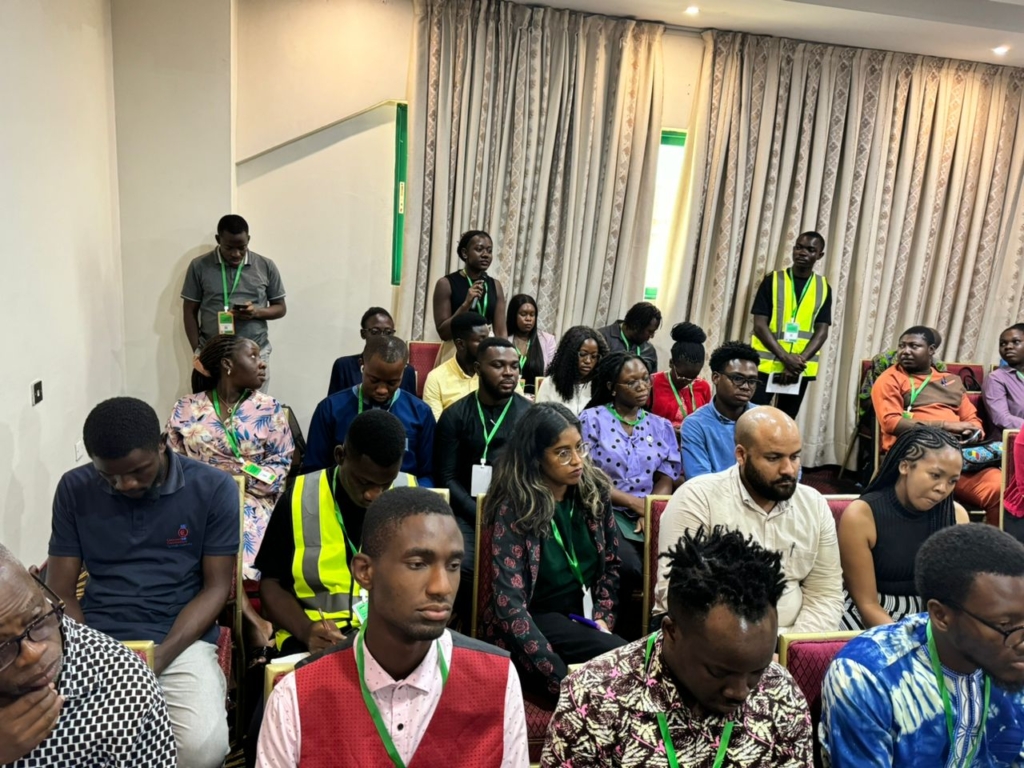Experts have emphasized the importance of humans leveraging their distinct attributes such as intuition, reasoning, and memory to maintain relevance in the evolving landscape of artificial intelligence.
They argue that by honing these skills, individuals can unlock their full potential and thrive in a world where both humans and machines coexist. They also state that humans, with their imagination and creativity, shape the future, highlighting the necessity for adaptation in the face of rapid change.
At the 11th Digital Rights and Inclusion Forum (DRIF24) in Accra, a fireside conversation hosted by the Public and Private Development Centre (PPDC) facilitated discussions among speakers from Nigeria, Ghana, South Africa, and Kenya. These discussions explored the potential of AI to drive local economic growth and enhance Africa's global standing, particularly in sectors like agriculture, job creation, and healthcare.

While there are concerns regarding AI potentially replacing human labor, speakers at the forum agreed that it presents an opportunity for humans to focus on higher-level thinking, reasoning, and professional pursuits.
President of IOT Network Hub - Africa, Joshua Opoku Agyeman, emphasizes the importance of humans tapping into their imagination, intuition, and reasoning abilities, which machines lack, to maintain a competitive edge over AI tools.
“The future we are looking at is created by humans - it was created through our imagination. The more we can be human, the more we have a role to play in the future. We have imaginations, machines don't have that and they never have imaginations. It is a tool we have to start exercising. We have intuition - machines will never have intuition no matter how intelligent they are,” Joshua indicated.
Joshua further said that humans possess the capacity to envision and construct a better world, a capability that enables them to create AI tools and ensures their enduring relevance in the world.
“Humans have reasoning, machines don't have. They might be able to crack data, but it doesn't mean they are thinking because they have that ability to do it. We have memory capacity - we collect data with our senses, our eyes, ears, and everything and if we can develop this innate ability of ours, we are going to be better than machines. We also have perception - our perception is always going to change things for us.”
He emphasizes that humans are inherently the species best equipped for survival, noting that throughout different generations, various technologies have emerged, yet humans have consistently adapted and thrived.
"Humans have a tendency to become addicted to things due to our brain's wiring, and this addiction can escalate with repeated practice. As we move forward, our world will be shaped by the Internet of Things, where everyday objects - from shoes to glasses - will be connected to the internet, collecting data and influencing our lives," he said.

Joshua emphasizes that the new world ahead will bear little resemblance to the current reality, urging Africans to embrace this transformation. He highlights that individuals' willingness to adapt will play a pivotal role, as some will eagerly adopt new technologies while others may be more cautious or resistant.
Regarding emerging technologies like AI, Joshua underscores that humans do not have the luxury of choice; rather, it's a revolution that will profoundly shape their future.
Addressing the responsible use of AI, Sani Suleiman from the Paradigm Initiative emphasizes that there is ample opportunity for all in the realm of AI. He stresses the importance of engaging all relevant stakeholders in the development of AI policies and regulations.
Sani highlights that companies are actively constructing infrastructure and offering extensive support for AI, emphasizing the necessity for investment in Africa to enable participation in the global AI revolution.
He further points out that the data barrier presents a significant challenge for the advancement of artificial intelligence in Africa, stressing the importance of addressing this issue.
Latest Stories
-
Brazilian Supreme Court justice threatens to arrest Bolsonaro
2 hours -
Queen Elizabeth II’s fashion to feature in exhibition
2 hours -
North Macedonia backs Morocco’s autonomy plan as sole basis for resolving Sahara dispute
2 hours -
Coach Lars Björkegren “proud” of Black Queens after penalty defeat to Morocco
2 hours -
Hosts Morocco to take on Nigeria in African women’s final
3 hours -
We were the better team – Queens coach Bjorkegren reflects on WAFCON 2024 semi-final loss
3 hours -
Mali court rejects appeal to release four Barrick employees, judge says
3 hours -
Kenyan man on death row in Saudi Arabia freed
3 hours -
Euro 2025: England beat Italy to reach finals
3 hours -
Ho Technical University partners with GhIE Branch 6 For Engineering and Innovation Week
3 hours -
The voices in the cockpit fuelling controversy over Air India crash
3 hours -
Mike Lynch estate and business partner owe HP Enterprise £700m, court rules
3 hours -
Trump administration pulls US out of UNESCO again
3 hours -
WAFCON 2024: Ghana’s Black Queens miss out on final after penalty loss to Morocco
3 hours -
Coca-Cola will roll out cane sugar Coke in US after Trump push
4 hours

